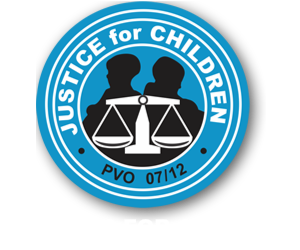The Impact of Covid 19 on Juvenile Justice and Human Rights
The COVID-19 pandemic had devastating consequences for children and their rights especially during the lockdown period when schools were closed indefinitely for a period of more than 6 months. More than 4.6 million children in the country were affected by the prolonged closure of schools given that schooling is protective, particularly for poor and vulnerable children and adolescents. The longer children were out of school, the more vulnerable they became and the higher their chances of either abusing themselves or being abused by adults. Many children became involved in child labour, sexual exploitation resulting in teenage pregnancies, child marriages, and abuse including neglect, violence, mental health issues and other threats to their well-being. In response to their vulnerability, some children came into conflict with the law for offences varying from contravening of lockdown restrictions, theft, rape, unlawful entry and even murder among other offenses. These children were then arrested and detained. Unfortunately, instead of being offered protection by the justice system, some children’s rights were further violated by justice players at arrest, during detention and sometimes even at trial.
The organisation notes with concern that it has been 30 years since the adoption of the United Nations Convention on the Rights of the Child (UNCRC) in 1989, yet children’s rights and liberties are still grossly violated in different settings. The UNCRC sets the normative standard for states parties, imposing on them the obligation to ensure the protection and promotion of children’s rights in every sphere through policy formulation, legislation and other practical measures. Further, it provides for additional requirements proclaiming that the detention of the child shall be a measure of last resort and in the event of detention it should be for the shortest period of time. The phrase ‘as a measure of last resort’ can be taken to mean that the child offender should only be incarcerated if there are no other substitute options, and this option should only be considered in the absence of an alternative appropriate response to ensure the child’s rehabilitation. Further where a juvenile is being charged of an offence he at all times should be accompanied by a guardian and in the absence of such a guardian, a probation officer throughout all the justice processes.
As a direct response to developments under international children’s rights law, many African countries, including Zimbabwe, have constitutionalised children’s rights. The right of child offenders not to be detained except as a measure of last resort and for the shortest appropriate period of time is enshrined as a fundamental constitutional right in Zimbabwe. This entrenched right strongly affirms the well-established recognition that children accused of committing offences deserve to be treated differently from adult offenders. However, contrary to international and national laws in this regard, implementation of juvenile justice rights by child justice players continue to be a challenge as some of them continue to deprive child offenders of their rights including their right to liberty through detention on arrest (police custody), pre-trial detention and prison sentences. As evidence, between the periods January- February 2021 a total of thirty four (37) juveniles in conflict with the law were identified and received by Justice for Children through a survey of three prisons. 85% of these juveniles indicated that they had been incarcerated from initial arrest in police cells and twenty nine of these juveniles were remanded and identified at various prisons being at Bulawayo Remand (13 juveniles), Mutare Remand (3 juveniles), Chikurubhi Prison (1) and Harare Remand (12 juveniles). 2 of these cases were of juveniles who had already been given custodial sentences and were placed at Chinhoyi Prison and Chikurubhi Prison. Justice for Children ensured access to justice to these children through provision of legal services at both the lower and the higher court’s whilst challenging justice players to uphold juvenile justice rights in the same process thereby promoting the rehabilitative and re-integrative nature of the juvenile justice system as opposed to retribution.
It is high time that children in conflict with the law are viewed as vulnerable children in need of protection from the community level to the national level. Further whilst communities may fail to appreciate the vulnerability of such children, justice players are least expected to perpetuate child rights violations by failing to provide a child friendly justice system. It is the responsibility of the government to ensure that every justice player is trained on children’s rights, failure of which a specialised juvenile justice system with specially trained personnel should be availed otherwise the progress made in adopting children’s rights in our constitution would be put to waste.
Authored by : Pamellah Musimwa
Child Rights Advocate – Justice for Children
LLM (MSU)/LLB (UZ)
